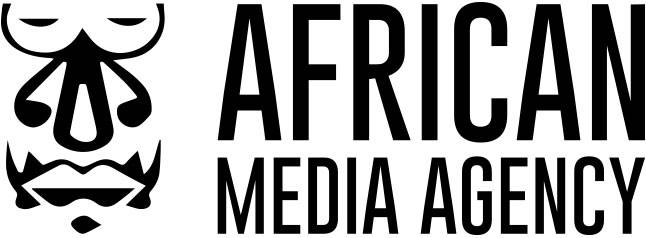ANTANANARIVO, Madagascar, November 7, 2019,-/African Media Agency (AMA)/- On the sidelines of the 11th edition of the African Private Sector Forum, the African Union Commission today launched two flagship economic reports, including the report Africa’s Development Dynamics (AfDD) 2019 produced in collaboration with OECD Development Center on the theme “Achieving Productive Transformation in Africa” and the new report on Domestic Resource Mobilization: Fight against Corruption and Illicit Financial Flows (IFFs).The launch event was chaired by H.E. Richard Randriamandranto, Minister of Economy and Finance of Madagascar.
“Africa loses more than $ 50 billion a year in illicit financial flows. In this report, you will see the losses of the 55 member countries of the AU in 2004 in 2013 as a result of IFFs and Corruption “noted H.E. Prof. Victor Harison in his introductory remarks. The issue of corruption and IFFs remains a priority of the African Union Commission (AUC). Over the years, the AU has taken a number of concrete steps to address this issue and continues to work on these efforts. The Department of Economic Affairs (DEA) of the African Union Commission today launched a new publication in collaboration with AU Member States sharing best practices from African countries and an analysis of the current state of affairs of domestic resource mobilization in Africa. The report concludes by calling on Member States to use the subsequent resources mobilized and to optimize available expenditures in order to help reduce dependence on external resources, reduce the resource gap for Africa’s development, to foster economic growth, create jobs and significantly reduce inequalities.
Africa’s Development Dynamics (AfDD) 2019, also released today, shows that Africa’s expanding domestic markets offer great opportunities for transforming production systems across the continent. The African continent recorded 4.6% annual gross domestic product (GDP) growth between 2000 and 2018; with domestic demand accounting for 69% of this annual growth. The continent’s growth is projected at 3.6% in 2019 and should remain robust at 3.9% between 2020 and 2023. The regional demand for processed food is growing 1.5 times faster than the global average. Large Pan-African firms and some dynamic start-ups are seizing these opportunities to grow, as highlighted in the report.
African firms are the key to the economic transformation of the continent, but they need governments to create better conditions for them to thrive, according to the second edition of the African Union Commission’s (AUC) flagship economic report produced in collaboration with the OECD Development Centre. Without bold policy changes, most African businesses may not be ready for reaping the benefits of the African Continental Free Trade Area Africa (AfCFTA) which is projected to offer offers African firms new opportunities of a 1.2 billion strong continental market.
However, the report finds that Africa needs more dynamic enterprises to turn these opportunities into higher profits, more investment and new, decent jobs. This is especially true of small and medium enterprises in employment-intensive sectors:
- Firms fail to tap the growth in neighbouring markets: exports of consumption goods to other African markets decreased from 0.8% of Africa’s GDP in 2009 to 0.5% in 2016. Currently, most African firms are losing out to new competitors both at home and in emerging markets. Only 18% of Africa’s new exporters survive beyond three years.
- Productivity is not catching up. Since 2000, Africa’s average labour productivity has stagnated at around 12% of US levels. Africa-to-Asia labour productivity ratio has decreased from 67% in 2000 to 50% in 2018.
“Accelerating the development of Africa’s productive sectors is critical to meeting the objectives of the African Union’s Agenda 2063. We must shake the structure of our economies to create strong, robust and inclusive growth, with new jobs and opportunities for all”, said H.E. Prof. Victor Harison, Commissioner for Economic Affairs of the AUC, while launching the report. Progress in quality jobs is too slow: in some countries, almost 91% of the workforce outside of the agricultural sector remains in informal and vulnerable employment.
AfDD 2019 puts forward a systemic approach to productive transformation by focusing on three sets of policies:
- Develop effective clusters of firms, by providing them with business services that improve specialisation in niches, linkages between the most productive ones and the others, and address skill shortages.
- Encourage the creation of regional production networks to generate economies of scale between African countries, attract new investors, develop complementarities within the value chains, and avoid a competitiveness race to the bottom.
- Enhance firms’ abilities to thrive in new markets. Policies can provide extra support to exporters by removing non-tariff barriers to the continental trade, simplifying administrative procedures and custom services, and improving connective infrastructure – especially flights, roads and ports.
“The entry into force of the African Continental Free Trade Area in 2019 marks a strong commitment by African leaders towards productive transformation. But it will work if African firms are strong enough to compete in this new, enlarged market. African firms need bolder and smarter government policies to support them”, stated Mario Pezzini, Director of the OECD Development Centre and Special Advisor to the OECD Secretary-General on Development. “Removing non-tariff barriers reduces uncertainties for exporters and may increase fivefold the gains from tariff removal”, he added.
The report provides detailed analysis and recommendations for each of the five African regions.
To consult Africa’s Development Dynamics 2019, go to: https://au.int/afdd2019 and https://oe.cd/afdd2019
The Domestic Resource Mobilization: Fighting against Corruption and Illicit Financial Flows report is available at:
https://au.int/en/documents/20190905/domestic-resource-mobilization-figh…
Follow discussions on the reports on social media: #AfricaDynamics2019; #IFFs
Distributed by African Media Agency (AMA) on behalf of the African Union Commission.
Note to Editors:
Africa’s Development Dynamics is an economic report produced by the African Union Commission in collaboration with the OECD Development Centre. Introduced in 2018, the report is designed to deepen dialogue and international collaboration on the pan-African agenda of integration and transformation in line with the vision and aspirations of Agenda 2063. Other joint projects between the African Union Commission and the OECD Development Centre include the organisation of the yearly International Economic Forum on Africa and the Revenue Statistics in Africa report.
The report on Illicit Financial Flows entitled Domestic Resource Mobilization: Fighting against Corruption and Illicit Financial Flows provides an analysis of the situation of corruption and illicit financial flows (IFFs) on the continent and presents the best practices of countries and the experiences of international organizations in mobilizing domestic resources and optimizing tax collection, fighting corruption and strengthening tax cooperation.
Contact Informations:
Requests for information on the two reports should be directed to:
African Union Commission:
Dr. Yeo Dossina | Department of Economic Affairs | African Union Commission I E-mail: [email protected]
Ms. Djeinaba Kane | Department of Economic Affairs | African Union Commission I E-mail: [email protected]
Contact- OECD Development Centre for the ADD report:
Bochra Kriout; Email: [email protected]; Tel: +33 145 24 82 96
Directorate of Information and Communication | African Union Commission I E-mail: [email protected] I Website: www.au.int I Addis Ababa | Ethiopia
For further information: Directorate of Information and Communication | African Union Commission I E-mail: [email protected] I Website: www.au.int I Addis Ababa | Ethiopia
Follow us –Facebook: https://www.facebook.com/AfricanUnionCommission
Twitter – @_Africanunion @AU_Economy
YouTube: https://www.youtube.com/AUCommission












